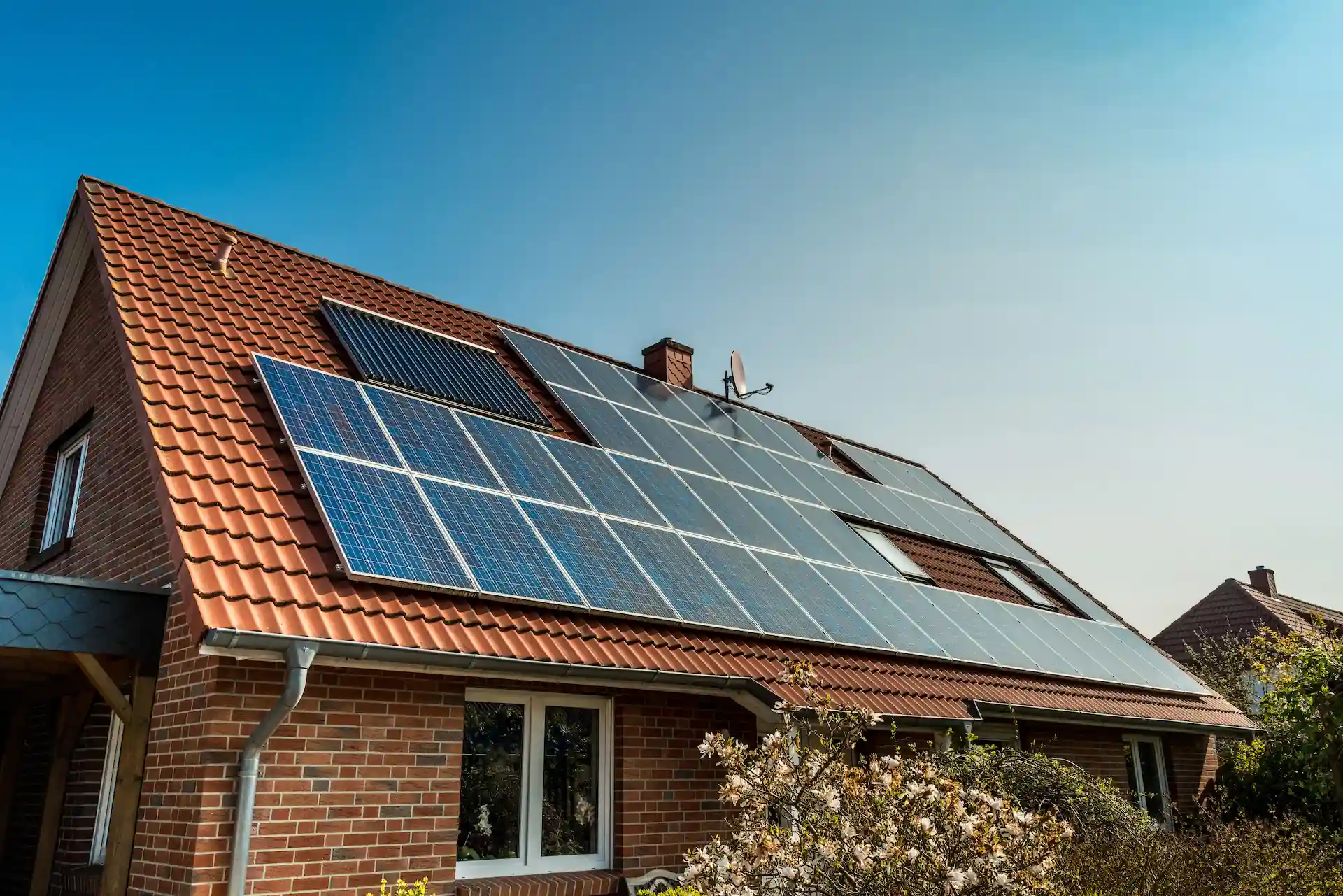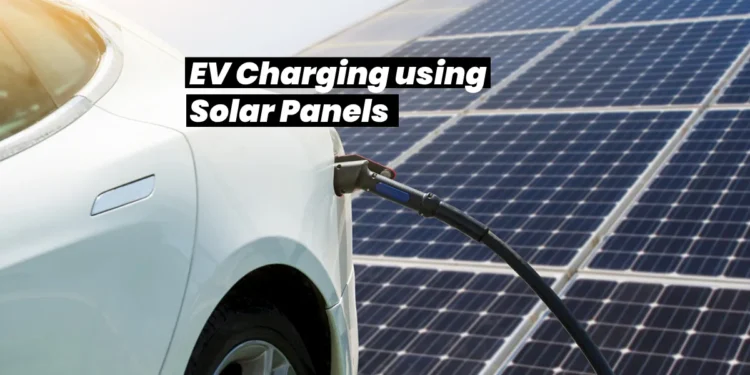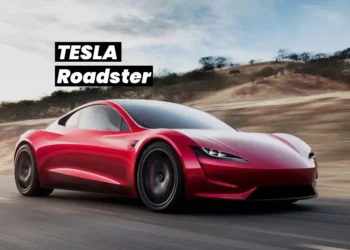Table of Contents
Charging EV With Solar Panels?
1. Can I Charge An Electric Car Using Solar Panels?
Well, in a nutshell, absolutely! It’s entirely possible to juice up your electric ride using the power of the sun.
Now, the whole solar power and electric car combo is all the rage these days, and why wouldn’t it be? People are keen on making eco-friendly choices to combat those pesky CO2 emissions. Enter solar photovoltaic panels (PV), the hip solution to tackle those soaring energy bills. And guess what? For the proud owners of electric cars, it’s a match made in green heaven. Imagine cruising around in your electric vehicle, knowing that the energy to charge it comes straight from those sleek solar panels on your roof.
Here’s the genius part, having a solar system perched on your rooftop not only helps offset your energy bills but, if you play your cards right with the tariffs, you might even get some cash back for the excess energy you pump into the grid. It’s like being an energy tycoon with an on-grid configuration. However, and there’s always a ‘however,’ the amount you get paid for the surplus energy you send to the grid is a tad less than what you cough up to buy it. For that reason, the smart move is to guzzle up as much of the electricity your solar system cranks out. And if your household can’t gulp down all that electrical goodness, redirecting the surplus to charge your electric car’s battery is a top-notch alternative.
2. How Can I Charge My Electric Car Using Solar Panels?
Well, it’s dead easy, really. Charging your electric vehicle from your solar setup doesn’t require any rocket science. Forget the fancy gadgets; all you need is a good EV charger, either level 1 or level 2, depending on what your solar system can handle. Now, since most sensible folks opt to charge their cars overnight, your solar rig better come equipped with a nifty battery storage system. This way, the battery can soak up all that glorious sunshine during the day and dish it out throughout the night when your EV is feeling a bit peckish.
Now, if you’re already rocking solar panels on your roof, here’s the drill. Get yourself a home charging unit and throw in a PV inverter unit for good measure. It’s like assembling the dream team for an electrically charged joyride. Easy peasy!
3. How Many Solar Panels Are Needed To Charge an Electric Car?
Alright, let me break it down for you in a way even a non electrician could understand. Before anything the size of your solar system boils down to how many panels can squeeze onto your roof without it collapsing and how much dosh you’re willing to throw at it. But, let’s delve into the nerdy stuff and do some math, shall we? Imagine you’ve got an EV battery thirsting for 25kWh. Now, assuming each solar panel is a beefy 350W and you’re basking in a solid 3 hours of direct sunshine, we whip out the calculator. It’s 350W multiplied by 3 hours, giving us a grand total of 1050Wh. Now, spread that sunshine love across 25 solar panels, and bam, we’ve got 26,250Wh in the bank. But hold on to your hats, because with that kind of power, you’ll be needing a storage system that could rival Fort Knox to handle the load, and if you are on the on grid configuration the battery part will not be needed, so you will only have to pay for the solar panels and the inverter.
4. How Much Does A Solar System Cost?

Actually, this question depends on how you’ve set up your solar system, be it on-grid, off-grid, or somewhere in between, like a hybrid setup.
Now, let’s venture into the off-grid scenario, the costly one, assuming you’ve got a rather hefty 25kWh EV battery in the mix. To crunch the numbers, you’re going to need your trusty trio: solar panels, a battery storage system, and an inverter. Forget the bells and whistles for a moment; these are the essentials. So, for our calculations, let’s consider 25 solar panels with a 350W capacity each. If we slap a $250 price tag on each panel, the grand total is 25 panels multiplied by $250, giving us $6,250. Now, let’s talk batteries. Assuming a 2.5kWh battery is priced at $2,500, you’ll need 10 of these for a cool $25,000. And don’t forget the inverter, we’re looking at around $10,000 for a 25kWh beast.
Adding it all up, we’re staring at $6,250 (solar panels) + $25,000 (batteries) + $10,000 (inverter) = a hefty $41,250. Brace yourself, though; this is just the tip of the iceberg. You’ve got installation fees, miscellaneous equipment costs.
5. How Much Does It Cost To Charge an Electric Vehicle Using Solar?
Now, when it comes to topping up your electric steed with solar juice at home, it’s a different game. Once you’ve weathered the storm of that initial investment, the beauty is, there’s virtually zero cost to charge your electric vehicle. Even if you’re rolling with an on-grid setup, the price gap between what you’re guzzling and what you’re shoving back into the grid is so minuscule that, for all practical purposes, you’re essentially giving your car a charge for free. It’s like stealing sunlight and turning it into a free ride, the kind of thievery we can all get behind!
6. Are Solar Panels Worth It To Charge Your EV?
As with any investment, the question of whether solar panels are worth the fuss, it’s a bit like deciding between a vintage sports car and a sleek modern electric vehicle. In fact there are both benefits and drawbacks to juicing your EV with a household solar system. So let’s break down both the pros and Cons of home solar EV charging so that you make a more informed and confident decision.
Pros of charging with solar system:
- Lower electricity cost: Solar-generated power is free, meaning it won’t sneakily inflate your monthly bills. you strategically sip on solar juice during peak hours, and when the grid goes into its off-peak slumber, you switch to that sweet, sweet grid electricity at lower rates, further slashing your overall electricity tab.
- Free Charging: Depending on your daily mileage, your home solar setup might be able to charge your EV for free.
- Financial benefits: You can actually bask in the glow of financial benefits. Participate in net metering schemes, grab tax credits, or even pocket some cash rewards by tossing surplus solar power back into the grid.
- Reducing your CO2 emissions: Generating clean, renewable solar energy to charge your car is like giving Mother Nature a high-five.
- Becoming energy independent: You can proudly declare your energy independence by creating an off-grid power solution for your household.
Cons of solar and charging:
- Solar systems can be expensive: Installing solar panels can be a bit like paying the entrance fee to an exclusive club. The upfront cost might make your wallet flinch, but fear not, governments in many countries are throwing financial incentives your way, so keep an eye out for grants or subsidies to soften the blow
- Weather dependency: Your panels are only as good as the sunlight they bask in, impacting the overall electricity generation.
- Need for battery storage: If you chose not to go on-grid and your EV gallivants around during daylight hours, a battery storage system becomes the sidekick to ensure your solar power doesn’t go to waste.
- Ownership requirement: Before you start summoning the sun gods, remember, installing solar panels requires a roof or a sizable patch of land, which might be a pipe dream for city dwellers.
In the grand scheme, there’s a trove of advantages to going solar for your EV. It’s renewable, it’s usually cheaper than the grid, and it doesn’t belch out emissions. So, if you’re contemplating making the solar switch for your electric chariot, it’s a journey worth embarking on.
















